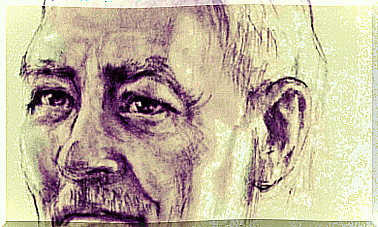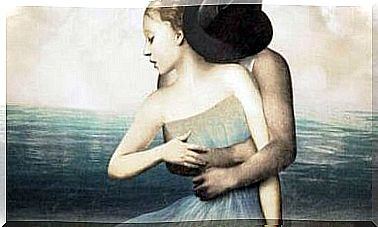When Caution Is Really Fear

Caution is a virtue that permeates a person’s personality. When someone practices caution, it becomes something like a halo around everything they do. Aristotle defined it as encouraging decent and correct behavior. The Church considers it one of the four cardinal virtues of man. But what happens when caution is really fear?
In today’s society, we call some cautious if they think before they act, or if they refrain from doing something because they think the consequences will be bad. A careful person can also act slowly and accurately if circumstances require it.
Long ago, people believed that where there was caution, there were other virtues as well. However, we must say that sometimes the word caution describes a lack of determination and motivation, or uncertainty. It is important to learn to distinguish one from the other.
Positive caution
Caution has a very positive side. The key word here is foresight, to see something before it happens. It’s not just pure guesswork; it is logical reasoning. This means that you reflect on and evaluate the situation to indicate where a particular action may lead you.
The ability to be careful and to have foresight is crucial for decision making. These virtues set you on the path to success and help you make the right choice more often. It gives you advantages in strategic problem solving. If you make mistakes, caution makes them much more affordable.

Caution is the opposite of impulsivity. Caution is the key when a decision or action involves risk or danger. It is a virtue closely associated with intelligence, reflection and self-control. In complex situations, it is incredibly valuable.
Excessive caution and emotion processing
There are some who are cautious, but not necessarily cautious. Caution also includes the ability to be brave when circumstances are favorable. Otherwise, we are no longer talking about caution, but fear.
When you take care to the extreme, it is no longer a virtue. It becomes an emotion processing problem. Excessively cautious people perceive reality as a threat. As a result, they avoid any action that could trigger unpleasant or catastrophic things. They reject something that means change. The “careful” choice is to stick to the world they already know.
This type of emotion processing does not lead to success or to the right decisions. It leads to paralysis. After all, it is completely impossible to eliminate all risk. Not even in the living room or sleeping in your bed, you are 100% safe from danger. Roofs fall down, plane crashes, thieves enter homes… If you always concentrate on possible dangers, you will essentially never live in peace.
Careful or shy?
Excessive caution sometimes comes in strange forms. One of them is extreme perfectionism. Perfectionists want everything to be set in stone. They try to keep everything under control and to avoid mistakes at all costs. This “obsessed” behavior comes more from fear than caution. Behind this behavior is a somewhat paranoid expectation: If I leave some loose threads, the whole picture will unravel.

Finally, there are people who use caution as an excuse for inactivity. These people are more shy and delicate souls than cautious. There will always be new situations you are not prepared for, but they provide exciting opportunities for personal growth. If you say “no” just because you are not sure of the outcome, you say “no” to life itself.
Emotionally healthy people take chances. But that does not mean they are ruthless; they make hypotheses and calculations and plans. They know that there will never be guarantees for absolutely everything they do.
Careful people also know that mistakes are always possible. However, there is no need to fear them, since they are an incredible source of wisdom and experience. Caution is not fear, but responsibility.









